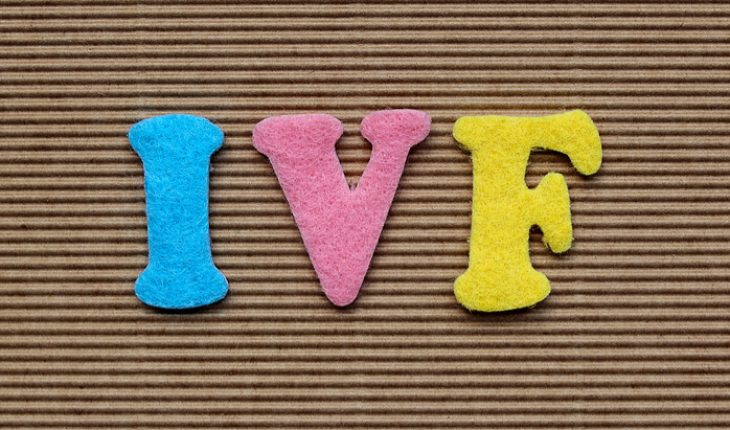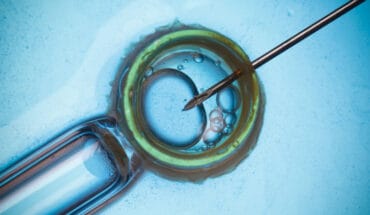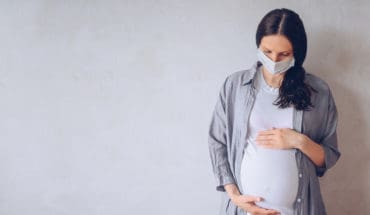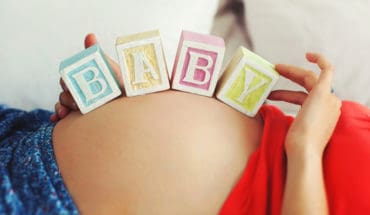I would never have been able to have my babies without the help of IVF because I had both fallopian tubes removed when I was 30. (The fallopian tubes link the uterus to the ovaries). I am so grateful that IVF technology exists to let me have a family of my own. Elise and Uma are happy healthy children who were conceived using modern technology and I am very proud of that.
I disagree when people say that IVF is somehow wrong or harmful. I was shocked when the Italian designers Domenico Dolce and Stefano Gabbana said in a magazine interview in 2015 that they thought IVF babies were ‘chemical children’ and ‘synthetic’. My children are as real as can be. I think everyone has the right to be a parent and infertility is a disease which should be treated like any other.
I don’t give a second thought to headlines about the safety of IVF. Most of the studies that suggest there may be long-term health concerns due to IVF are based on little research. For example, scientists have said that IVF babies are more likely to be overweight or obese, but in my view, that is linked to their diet and lifestyle. Elise and Uma have a healthy well-balanced diet and they are an average weight for their height. I believe that’s down to parenting, not IVF.
When I was 30, I was diagnosed with endometriosis where the lining tissue of the womb migrates outside the womb and causes scarring and infection. I had also always suffered really painful periods but I just thought it was normal. It wasn’t until I decided to start trying for a baby with my then partner that I realised the pain wasn’t right and went to see my doctor. I underwent a procedure called a laparoscopy when it was discovered that both my fallopian tubes were very badly infected. I later made the very difficult decision to have them removed.
Without my tubes, normal conception was an impossibility. Luckily, my partner and I were able to afford a private cycle of IVF at the Lister Fertility Clinic in London and it worked first time, and Elise was born on the 22nd May 2012. We actually chose to have a form of IVF called ICSI, which means that the sperm is injected directly into the egg before the fertilised embryo is then replaced inside the woman’s uterus. I know that there has been a study showing male babies born by ICSI are more likely to have poor quality sperm and low sperm counts themselves, but this could simply reflect the fact that the majority of the fathers in the study had male factor infertility which they could have passed on their male offspring. I believe that the assisted conception technique has nothing to do with it.
Elise’s father and I are parted shortly after she was born, and I then met my partner Gerry and we married in London in January 2015. We were keen to have a baby and we had private IVF treatment, as the fact that I already had a child made us ineligible for IVF cycles on the NHS.Using conventional IVF, I did get pregnant the first time, only to suffer a miscarriage. We pulled ourselves together and tried again with our two frozen embryos but sadly neither of them were successful. That was when I realised that I needed to dedicate more time to the treatment so I gave up my job as a primary school teacher and concentrated on making sure that my diet and lifestyle gave me the best possible chance of becoming a mum again. Thankfully, it worked and Uma was born on the 10th November 2015.
Now I run a business supporting women and their partners as they go through the IVF experience. I don’t think that clinics offer enough support to people for whom it never works. I know from my own experience that there are very few places to turn to when the treatment fails, and the statistics show that the failure rate is higher than the success rate. I think we should focus more on guidance and education on fertility generally rather than questioning the validity of assisted conception.
Next year, Gerry and I hope to have a frozen embryo transfer from the last cycle of IVF and I plan to take Elise with me to watch the process being done. I’m proud that IVF is part of her story and I hope she will be proud of this too one day.
- Why IVF technology is a boon - 29th November 2016







IVF technology might be a boon but commercialising it so pretty much anyone with the money can purchase babies like ice-cream flavours is hardly a boon. And since science-medicine will not know for another 50 years what effects there are on artificially created human beings, that is when an IVF human has grown up to live a relatively normal life and given birth to children who do the same, all of it remains an experiment with unknown outcomes. If the impact of forcing a woman’s body to produce multiple eggs, bathed in synthetic hormones, sucking them out, putting them in… Read more »